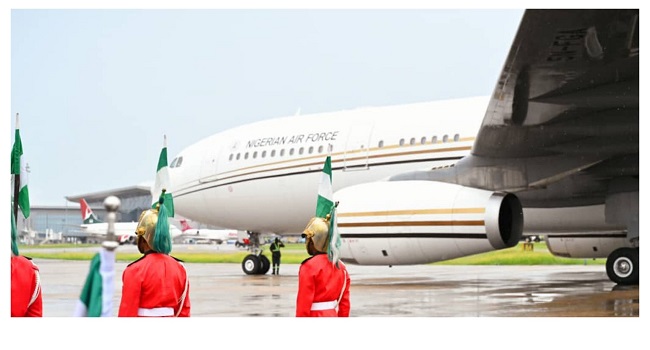Senator Enyinnaya Abaribe, representing Abia South Senatorial District, has revealed that the National Assembly was not approached for approval before the recent purchase of an Airbus A330 jet by the Presidency.
The jet, unveiled in August for President Bola Tinubu’s use, has sparked public outrage, with many Nigerians criticizing the acquisition as insensitive to the economic challenges facing the nation. In defense, presidential spokesperson Bayo Onanuga described the aircraft as a “refurbished jet” rather than a new purchase.
“No Request Reached Us”
Speaking on Politics Today, a Channels Television program, on Monday, Senator Abaribe dismissed claims that the legislative arm sanctioned the purchase.
“I am in the National Assembly, but I can tell you for a fact that nobody quote me, nobody brought anything to the National Assembly to say, ‘Please approve this for the purchase of a new plane,’” Abaribe stated.
The senator expressed concern about the lack of transparency, adding that the omission undermines the National Assembly’s role as a check on executive actions.
Public Perception of Lawmakers
Senator Abaribe acknowledged the criticism aimed at the legislature for allegedly rubber-stamping executive decisions, noting that the perception persists despite lawmakers’ attempts to resist such practices.
“The public sees the National Assembly as rubber-stamped because of our seeming cooperation with the executive. But this stems from our attempts to achieve results despite repeated frustrations,” he explained.
Calls for Accountability
The controversy surrounding the jet purchase has reignited debates over the priorities of the federal government amid widespread economic hardship. Critics argue that resources allocated to such acquisitions could have been better spent addressing pressing national issues, including poverty alleviation and infrastructure development.
Senator Abaribe’s remarks highlight growing concerns about executive overreach and the need for stricter legislative oversight to ensure transparency and accountability in government expenditures.










